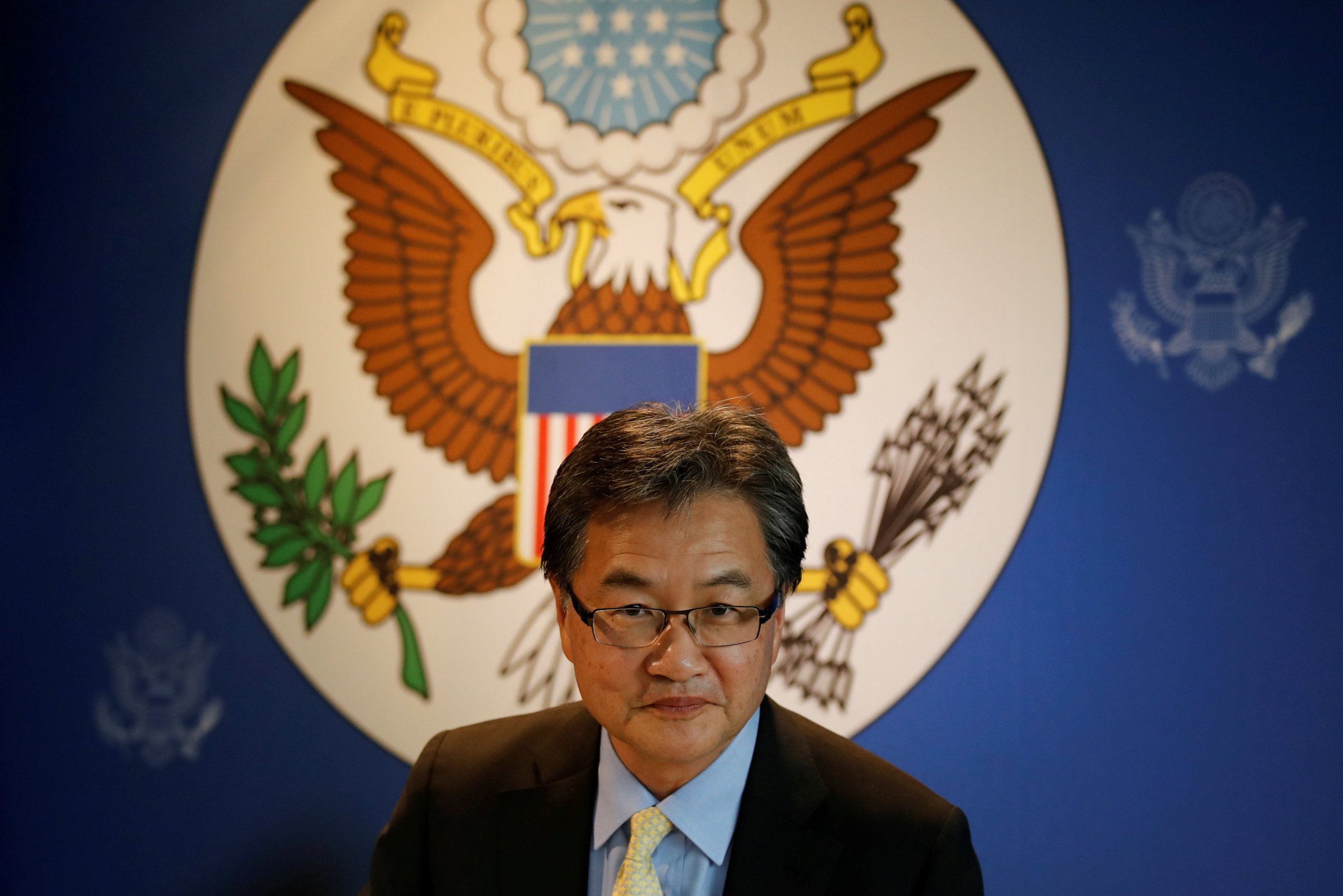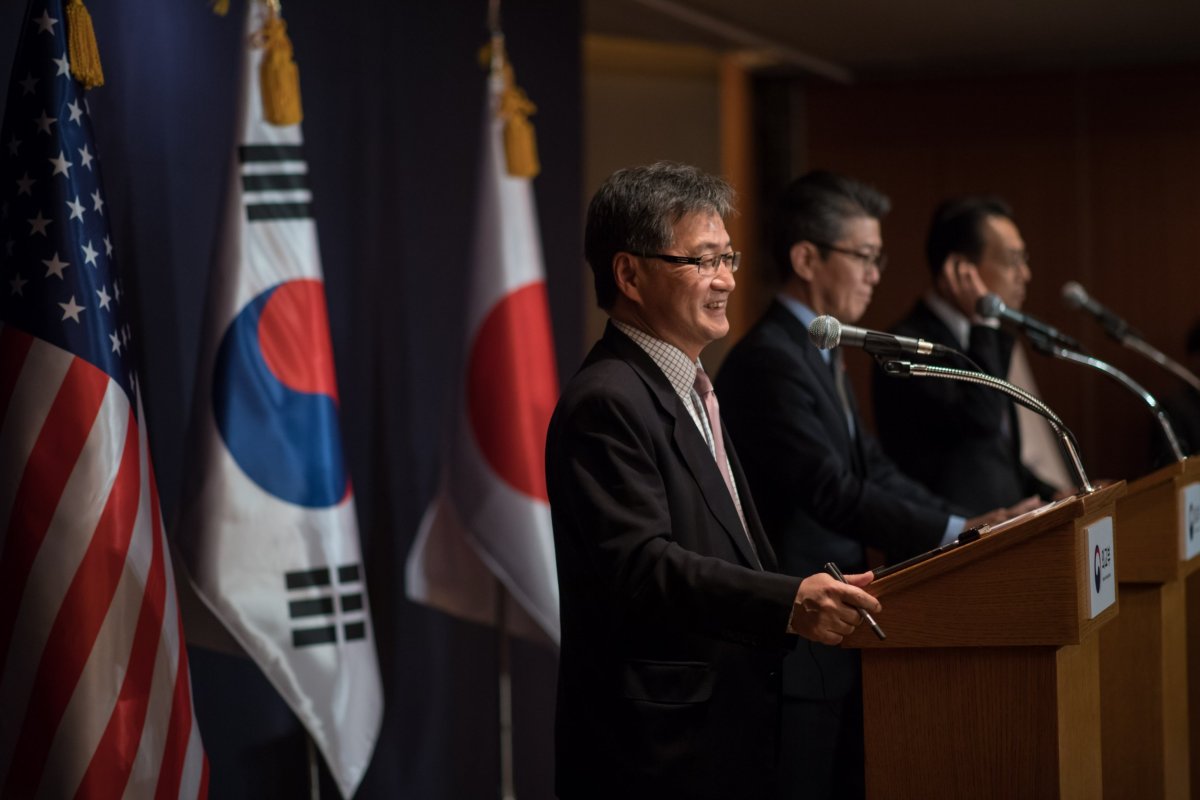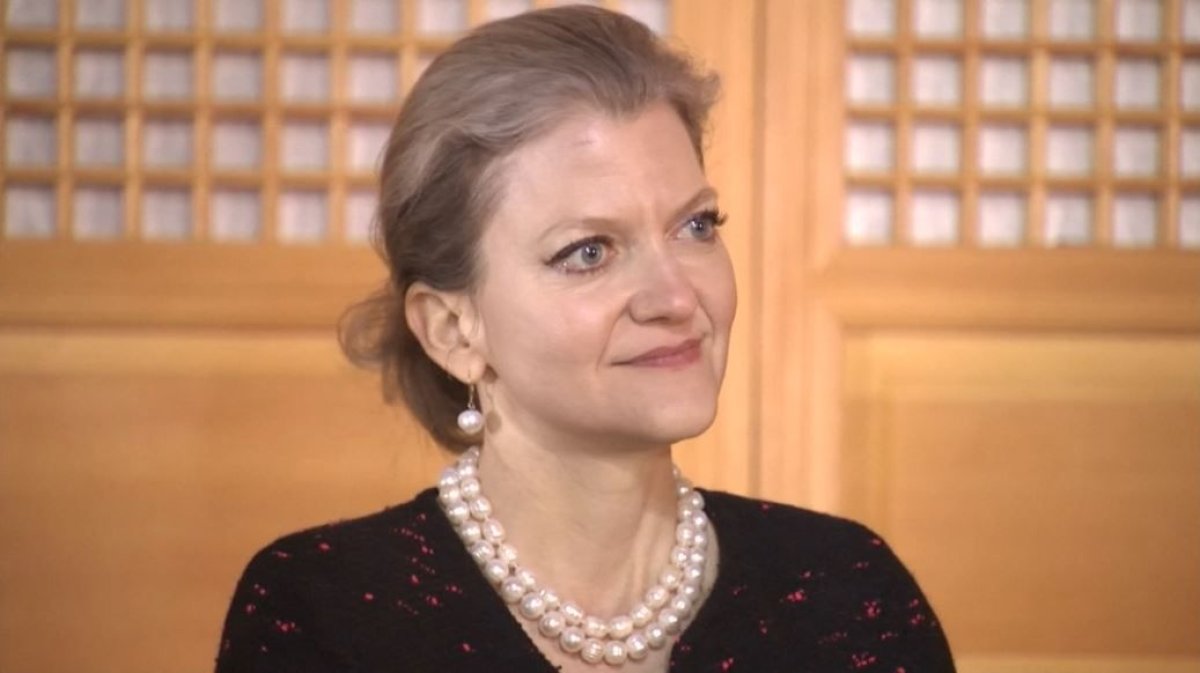
Updated | The U.S. top envoy on North Korea confirmed he will be retiring at the end of this week, leaving a gap of expertise and knowledge at the State Department at a crucial moment for American engagement on the Korean Peninsula.
Joseph Yun holds both the position of United States special representative for North Korea policy and of deputy assistant secretary for Korea and Japan in the Bureau of East Asian and Pacific Affairs, roles to which he was appointed in October 2016 by President Barack Obama after a three-year stint as U.S. ambassador to Malaysia.
"This is my own personal decision," Yun told The Washington Post regarding his decision. "Secretary Tillerson has told me he appreciates my service and did not want me to go, but he accepts it reluctantly."
State Department spokesperson Heather Nauert confirmed the news. "Ambassador Joe Yun, a respected member of the Senior Foreign Service, has decided to retire for personal reasons," she said in a statement, adding that Secretary of State Rex Tillerson "has reluctantly accepted his decision and wished him well."
South Korean–born Yun has been leading U.S. diplomatic efforts in the Korean Peninsula, traveling to North Korea to negotiate the release of American prisoner Otto Warmbier and meeting the other three American citizens imprisoned in the country.
Yun also frequently traveled to South Korea and Japan to coordinate the allies' response to the North Korean threat. In a visit to Tokyo earlier this month, Yun discussed the U.S. desire for dialogue with Pyongyang. Referring to President Donald Trump's policy of "maximum pressure and engagement," Yun mentioned the need for military options, but downplayed the possibility of these ever being implemented.
"Our policy is very much for the peaceful resolution of the North Korean nuclear crisis. We've said over and over again that what we want to see is dialogue," he told reporters earlier this month, quoted in Reuters. "Having said that, we also have said that all options are on the table and by all options, it has to include military options," he added. "I don't believe we are close to it."

After recent diplomatic breakthroughs—the resumption of contact between Pyongyang and Seoul, North Korea expressing an openness to dialogue and the White House's change of policy on talks with the regime—Yun was widely seen as having a crucial role to play in any future negotiations between the U.S. and North Korea. All the more so because the White House is yet to appoint an ambassador to South Korea—ambassadorial functions are currently being fulfilled by the chargé d'affaires at the U.S. Embassy in Seoul, Marc Knapper.
A leading candidate to the role of ambassador was Victor Cha, an expert on North Korea who served on the National Security Council under President George W. Bush, but he was dropped from the process after he wrote an opinion piece for The Washington Post in January strongly rejecting the possibility of a pre-emptive strike against the regime.
Yun's departure is the latest in a series of top diplomats leaving the State Department—earlier this month, Tom Shannon, the undersecretary of state for political affairs who briefly covered the role of acting secretary of state before Tillerson was nominated to the role, also announced he would retire as soon as a successor is chosen.

Yun has said his last day will be Friday, March 2, and it is unclear whether a replacement will be found by then. Yun's retirement shrinks the White House's pool of expertise on North Korea, but President Trump still has a few key advisers who can take on the role of lead negotiators. One of them is Allison Hooker, an unannounced addition to the U.S. delegation to the Winter Olympics in Pyeongchang, led by first daughter and presidential advisor Ivanka Trump.
Hooker, the Korea director on the National Security Council—a position to which she was appointed in 2014 by President Obama after serving as East Asia and Pacific affairs analyst at the State Department, is seen as a key player in the White House's policy on North Korea, and her presence by Ivanka's side sparked a flurry of speculation over a possible meeting with General Kim Yong Chol, who led the North Korean delegation to the Olympic closing ceremony.
Hooker and Kim had met before, when the U.S. official traveled to North Korea in 2014 as part of a delegation negotiating the release of American prisoners Kenneth Bae and Matthew Todd Miller, as South Korean media noted. But the North Korean and U.S. delegations did not interact during their visits to South Korea, according to the U.S. Embassy and National Security Council spokespersons.
Discussing Yun's departure, South Korean foreign ministry spokesperson Noh Kyu-duk said they were aware the foreign service veteran was planning to retire, Yonhap news agency reported. Noh added South Korea will continue discussing Korean affairs with Susan Thornton, nominee for assistant secretary of state for East Asian and Pacific affairs, while Yun's role is vacant.
This story has been updated to include remarks from the South Korean foreign ministry.
Uncommon Knowledge
Newsweek is committed to challenging conventional wisdom and finding connections in the search for common ground.
Newsweek is committed to challenging conventional wisdom and finding connections in the search for common ground.
About the writer
Sofia Lotto Persio reports mainly on Asia and gender issues for Newsweek. She previously covered international affairs with a specific ... Read more
To read how Newsweek uses AI as a newsroom tool, Click here.








